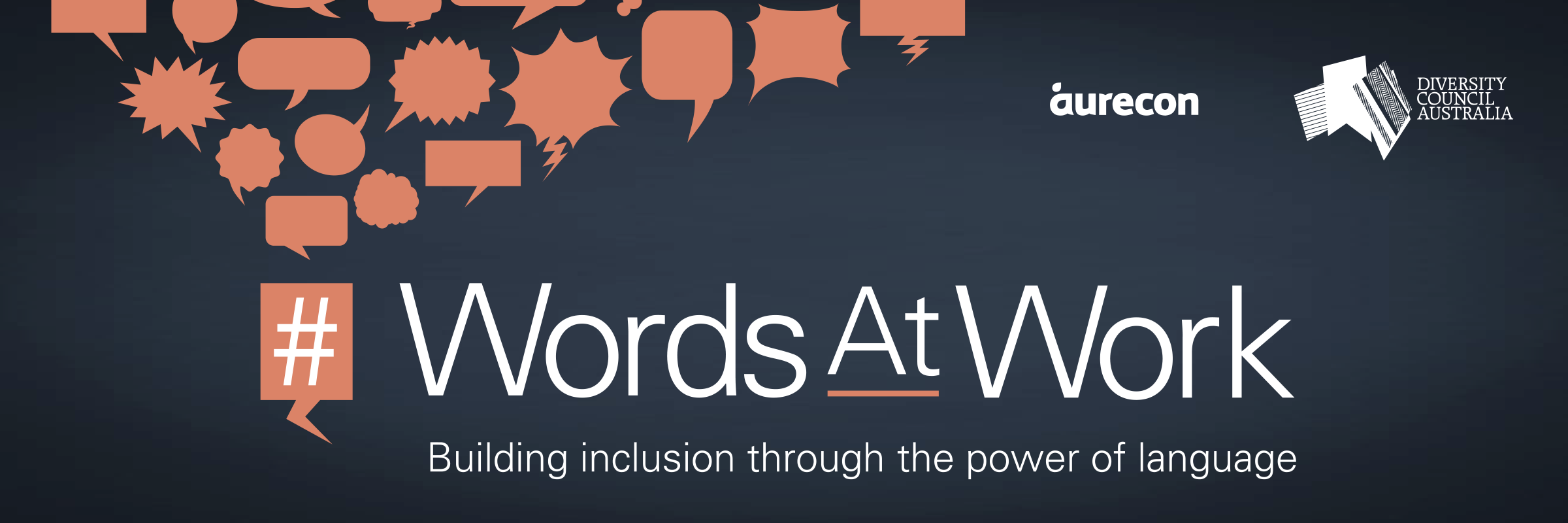
What is inclusive language?
Inclusive language is effective language – it is respectful, accurate and relevant to all.
- Respectful: Inclusive language involves knowing about and showing respect for all members of our team and workplace.
- Accurate: Inclusive language gives a more accurate view of the real world by reflecting social diversity rather than perpetuating stereotypes. It avoids making false assumptions about (or stereotyping) people based on their age, cultural background, disability, gender, First Nations background or sexual orientation and gender identity.
- Relevant: Inclusive language reflects Australia’s diversity, is meaningful to a wide audience, and enables everyone to feel that they are being reflected in what is being said. To feel included, we need to ‘see’ and ‘hear’ ourselves reflected in the language used at work.
DCA’s Words At Work campaign offers in-depth guidance on how to use inclusive language to improve workplace culture and drive productivity.
Why does inclusive language matter in the workplace?
Language is a powerful tool for building inclusion and exclusion at work. It can be used to create a sense of being valued, respected and ‘one of the team’ or of being under-valued, disrespected, and an ‘outsider’.
Inclusive language enables a diversity of people (e.g. different ages, cultures, genders) to feel valued and respected and able to contribute their talents to drive organisational performance.
DCA’s Words At Work research shows that:
- non-inclusive language contributes to and continues stereotyping
- non-inclusive language harms people who witness it as well as the intended targets
- when used in job interviews, non-inclusive language results in applicants from excluded groups finding the position less attractive, and experiencing less motivation and identification with the position than those who are exposed to inclusive language
- non-inclusive comments in the workplace can have an insidious effect on individuals from the excluded groups, impeding their advancement at work by presenting them as incompetent and not suitable for leadership roles
- frequent non-inclusive experiences at work have just as harmful effects as more intense but less frequent experiences (e.g. sexual coercion and harassment)
- non-inclusive jokes can lead to tolerance of hostile feelings and discrimination against people from excluded groups.
Member-only content
Gain full access with DCA membership!
If your organisation has just signed up, your access will be activated as soon as payment is received.
